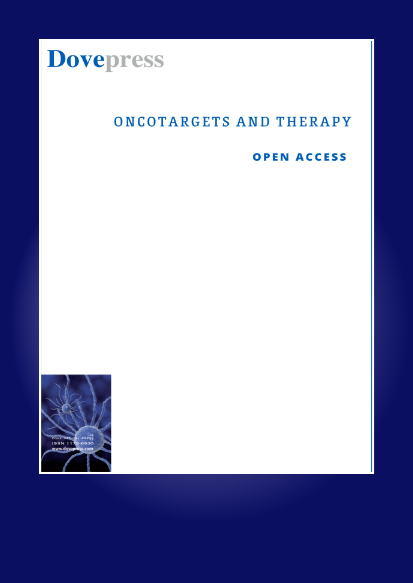TSC22D2 Regulates ACOT8 to Delay the Malignant Progression of Colorectal Cancer
IF 2.7
4区 医学
Q3 BIOTECHNOLOGY & APPLIED MICROBIOLOGY
引用次数: 0
Abstract
Purpose: Colorectal cancer (CRC) is one of the cancers with high incidence and mortality rates worldwide. In China, there are approximately 400,000 new CRC cases each year, seriously endangering people’s life and health. Transforming growth factor β-stimulated clone 22 domain family, member 2 (TSC22D2) is widely expression in cancers, but the role of TSC22D2 in CRC are still unknown.Methods: Real‑time quantitative PCR (qRT-PCR) and Western blot were applied to determine the TSC22D2 levels. CCK-8, colony formation and transwell assays were used to determine the proliferation and metastasis abilities of CRC cells in vitro. In vivo metastatic potential was assessed using a subcutaneously injected mouse model and. Western-blot and immunoprecipitation experiments were used to study the mechanism of TSC22D2‑mediated metastasis.
Results: We found TSC22D2 was deregulated in CRC tissues and cells and implied poor prognosis. Overexpression TSC22D2 significantly promoted CRC cells proliferation and tumorigenicity both in vitro and vivo, whereas knockdown TSC22D2 resulted in the opposite effects. Importantly using a co-immunoprecipitation (co-IP) assay combined with mass spectrometry analysis to identify TSC22D2-interacting acyl-coenzyme A thioesterases 8 (ACOT8), TSC22D2 maintained stability of ACOT8. Overexpression of TCC22D2 in CRC cells can promote the expression of ACOT8 and inhibit the proliferation and metastasis of CRC cells through EMT mechanism, highlighting the possibility of TSC22D2 as a potential target in CRC development.
Conclusion: In summary, the present study revealed the inhibitory effect of TSC22D2 on the proliferation of colorectal cancer cells, suggesting that TSC22D2 may be an important tumor suppressor and a potential therapeutic target during colorectal carcinogenesis.
Keywords: colorectal cancer, TSC22D2, ACOT8, EMT
TSC22D2 调控 ACOT8 以延缓结直肠癌的恶性进展
目的:大肠癌(CRC)是全球发病率和死亡率较高的癌症之一。在中国,每年约有 40 万新发 CRC 病例,严重危害着人们的生命健康。转化生长因子β刺激克隆22结构域家族成员2(TSC22D2)在癌症中广泛表达,但TSC22D2在CRC中的作用尚不清楚:方法:应用实时定量 PCR(qRT-PCR)和 Western 印迹检测 TSC22D2 水平。采用 CCK-8、菌落形成和跨孔试验测定 CRC 细胞的体外增殖和转移能力。采用小鼠皮下注射模型评估体内转移潜力。通过 Western-blot 和免疫沉淀实验研究 TSC22D2 介导转移的机制:结果:我们发现 TSC22D2 在 CRC 组织和细胞中表达异常,意味着预后不良。过表达 TSC22D2 能显著促进体外和体内 CRC 细胞的增殖和致瘤性,而敲除 TSC22D2 则会产生相反的效果。重要的是,通过共免疫沉淀(co-IP)试验结合质谱分析确定了与TSC22D2相互作用的酰基辅酶A硫酯酶8(ACOT8),TSC22D2保持了ACOT8的稳定性。TCC22D2在CRC细胞中的过表达可促进ACOT8的表达,并通过EMT机制抑制CRC细胞的增殖和转移,突显了TSC22D2作为CRC发展潜在靶点的可能性:综上所述,本研究揭示了TSC22D2对结直肠癌细胞增殖的抑制作用,提示TSC22D2可能是结直肠癌发生过程中一个重要的肿瘤抑制因子和潜在的治疗靶点。
本文章由计算机程序翻译,如有差异,请以英文原文为准。
求助全文
约1分钟内获得全文
求助全文
来源期刊

OncoTargets and therapy
BIOTECHNOLOGY & APPLIED MICROBIOLOGY-ONCOLOGY
CiteScore
9.70
自引率
0.00%
发文量
221
审稿时长
1 months
期刊介绍:
OncoTargets and Therapy is an international, peer-reviewed journal focusing on molecular aspects of cancer research, that is, the molecular diagnosis of and targeted molecular or precision therapy for all types of cancer.
The journal is characterized by the rapid reporting of high-quality original research, basic science, reviews and evaluations, expert opinion and commentary that shed novel insight on a cancer or cancer subtype.
Specific topics covered by the journal include:
-Novel therapeutic targets and innovative agents
-Novel therapeutic regimens for improved benefit and/or decreased side effects
-Early stage clinical trials
Further considerations when submitting to OncoTargets and Therapy:
-Studies containing in vivo animal model data will be considered favorably.
-Tissue microarray analyses will not be considered except in cases where they are supported by comprehensive biological studies involving multiple cell lines.
-Biomarker association studies will be considered only when validated by comprehensive in vitro data and analysis of human tissue samples.
-Studies utilizing publicly available data (e.g. GWAS/TCGA/GEO etc.) should add to the body of knowledge about a specific disease or relevant phenotype and must be validated using the authors’ own data through replication in an independent sample set and functional follow-up.
-Bioinformatics studies must be validated using the authors’ own data through replication in an independent sample set and functional follow-up.
-Single nucleotide polymorphism (SNP) studies will not be considered.
 求助内容:
求助内容: 应助结果提醒方式:
应助结果提醒方式:


